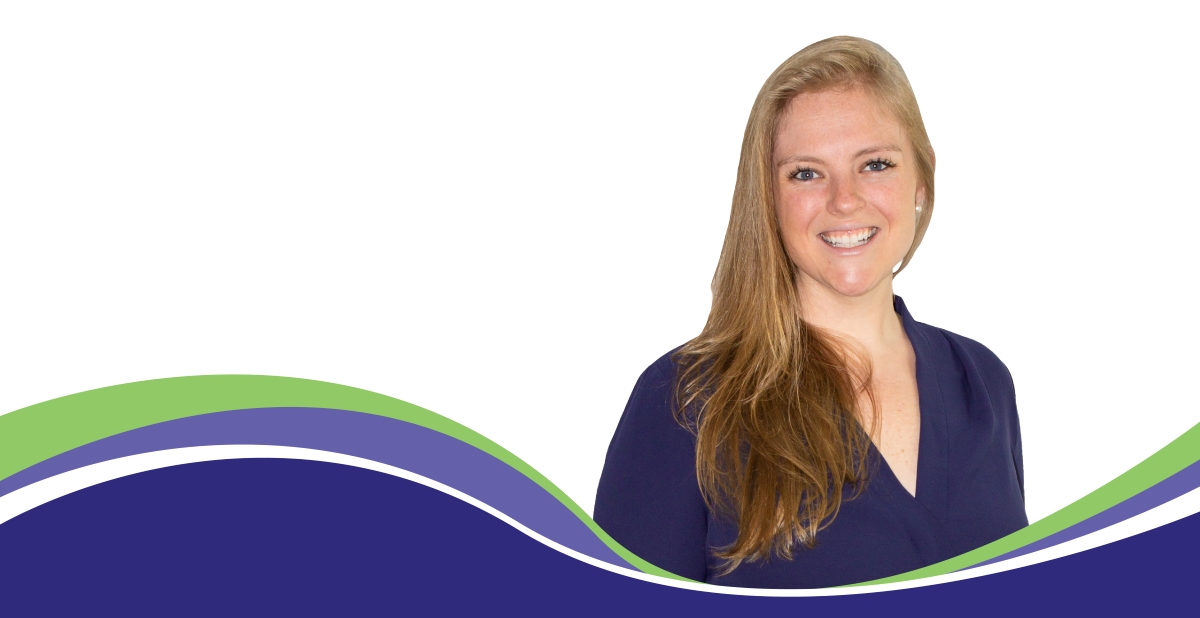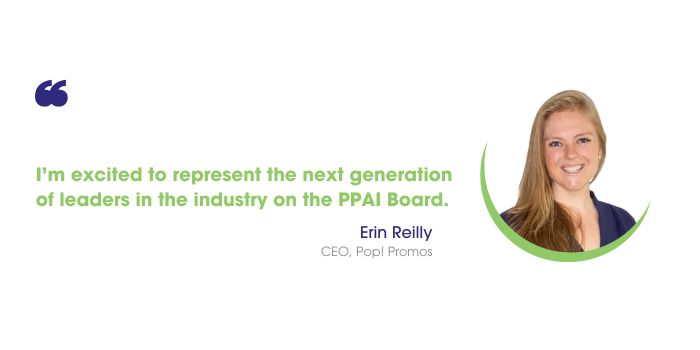Erin Reilly: Promo’s Next Generation

For some people, their promo story begins almost by accident. And that accident becomes a successful career that leads to election to the Board of Directors of promotional products’ longest running and most impactful trade organization.
As a senior at Johns Hopkins University, Erin Reilly and her best friend, Sterling Wilson, started making Pantone-matched sunglasses, inadvertently falling head over heels into the promotional products industry.
Launching College Glasses in 2012 and rebranding to Pop! Promos a year later, Reilly has worn just about every hat at the Philadelphia-based supplier, scaling the firm from a small startup to an award-winning organization with more than 125 employees in offices across the globe.
“I’m drawn to the creativity and collaboration within our industry,” says Reilly, CEO of Pop! Promos and a previous volunteer to the PPAI Women’s Leadership Committee. “Each project brings a distinct challenge, providing the opportunity to craft something both memorable and effective.”
Now Reilly begins her next project: a four-year term as a member of the PPAI Board of Directors.
“I’m excited to represent the next generation of leaders in the industry on the PPAI Board,” Reilly says. “As an executive in my early 30s, I come to the board with a unique perspective and vision for how we can cultivate, nurture and elevate rising leaders in the industry.”
The Generational Divide
The promo industry traditionally skews older, and its youth problem is a top priority for Reilly. According to PPAI’s “The State of Responsibility 2023” study, approximately one-quarter of the promo workforce is under the age of 30, with distributors averaging slightly above that mark (27%) and suppliers averaging slightly below (24%).
In order to attract more young people to the industry, Reilly suggests a relatively simple solution as a first step: Explain what promo pros do.
“Our industry is veiled and opaque,” she says. “Suppliers and distributors should be leveraging their websites and social media platforms to humanize their companies and explain what they do on a daily basis. We’re a creative, fun, innovative industry – let’s stop filling our social media feeds with stock pictures of water bottles.”

A few years ago, Reilly recalls, an employee recorded a “Day in the life at Pop! Promos” video and posted it on TikTok. It went viral, and the company was overwhelmed with job applicants. That outside-the-box thinking was a branding boon, Reilly says.
“It showed people who we are and what we do, which really connected with young people in the Philadelphia area,” she says. “We spend so much of our energy focused on providing creative solutions for our customers. If we channeled a fraction of that creative energy into recruiting and advocating for the industry and our respective companies, I don’t think we would still be having this conversation.”
Preparing For Promo’s Future
Along with creating a more welcoming and supportive environment for new entrants to the industry, Reilly plans on participating in two major initiatives that the PPAI Board is already focusing on: digital transformation and the public perception of branded merchandise.
“I hope to be involved in the next set of industry-sanctioned digital connectivity tools, as well as the initiative to elevate the industry’s public perception, value and the professionals who work so hard in it,” Reilly says.
If the industry wants to eradicate the “brandfill” stigma, Reilly says, promo pros must rally together and accept responsibility. Because sustainability standards aren’t universal across the industry, suppliers and distributors are forced to face uncertainty and inefficiency.
“An enormous amount of time, money and energy are being deployed on both sides to try to share sustainability information through an endless number of audits, associations and compliance regimes,” Reilly says. “There is an opportunity for PPAI to create something similar to the university ‘common application’ for sustainability standards in the industry, so we all have one shared source for sustainability information that can be understood by both suppliers and distributors.”

